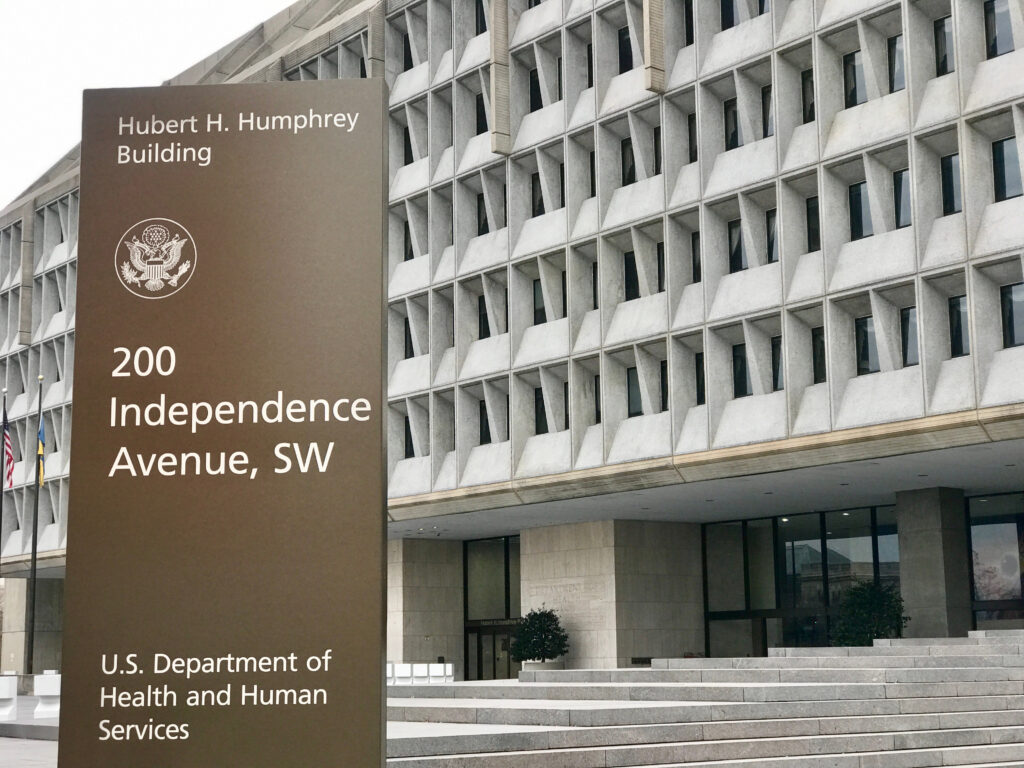In its continuing sweeping overhaul of federal health, the Trump administration’s mass layoffs across key US health agencies went into effect April 1.
The Health and Human Services (HHS) Department, now under the leadership of Secretary Robert F. Kennedy Jr. (RFK Jr.), announced last week it was slashing approximately 10,000 positions across agencies, including the FDA, CDC and NIH as part of a restructuring plan.
Thousands of employees across the health agencies were notified via email on April 1 that their positions were being eliminated.
The HHS said the cuts are part of a broader campaign to streamline government operations and reduce public spending.
RFK Jr. cites bureaucratic overreach and a lack of accountability in federal health institutions as reasons for the overhaul.
But on Thursday, April 3, RFK Jr. told ABC News that some of the programs and workers would be reinstated as they had been mistakenly cut.
Backtracking, he said the HHS layoffs had affected “personnel that should not have been cut.” He said that HSS’ intentions to reinstate those roles was “always the plan.”
Firings at the FDA May Be Hitting Reviewers
Reuters reported that FDA drug reviewers have been caught in the 3,500 job cuts at the FDA. This was despite HHS saying last week that they would not be targeted in the job eliminations.
However, it seems staff who directly review new products have not been affected, including inspectional staff. But several sources say reviewers are looking for new jobs after the major disruptions happening at the agency.
The layoffs last week also affected all staff responsible for handling records — including new product applications — within FDA divisions that oversee biotechnology therapies, medical devices, veterinary medicine and tobacco products.
Top scientists overseeing these areas were among the first to be impacted by RFK Jr.’s purge.
Many FDA staff involved in user fee negotiations were among those impacted by RFK Jr.’s wave of cuts, according to a report from Politico’s AgencyIQ on Thursday.
The FDA and the industry must reach an agreement on new user fees before drug reviews can proceed.
According to AgencyIQ, each of the FDA’s user fee programs includes a statutory trigger designed to prevent the agency from dipping below historical funding levels or substituting industry fees for Congressional appropriations.
If those thresholds are breached, the FDA would be barred from collecting new fees and required to refund those already received, the regulatory intelligence service explained.
User fees currently account for just under half of the FDA’s total funding, AgencyIQ noted.
If the agency were to violate these statutory limits, it could “effectively collapse” the user fee programs before the end of the year, the Politico affiliate warned.
This could potentially cause major disruptions across the industry, as these programs are essential to the FDA’s operations.
According to the initial layoffs announcement, the current 82,000 full-time employees across the federal health agencies will be reduced to 62,000.
RFK Jr. said the aim was to cut redundancies in “administrative sections” by consolidating dozens of IT, HR and communications departments.
However, critics argue that the current round of layoffs — already underway — risks undermining the country’s capacity to respond to pressing health crises.
HHS stated that the layoffs are projected to save $1.8 billion per year — roughly 0.1% of the department’s $1.7 trillion budget, the vast majority of which funds Medicare and Medicaid programs that provide health coverage to millions of Americans.
RFK Jr. has vowed to bring “radical transparency” and fiscal discipline to the agencies under his supervision.
Layoffs, Resignations and New Hires
Since President Trump’s return to office, the Elon Musk-led Department of Government Efficiency (DOGE) has ramped up efforts to shrink the federal workforce as part of cost-cutting measures. This began with layoffs at the US Agency for International Development (USAID) in February.
HHS became the latest agency to be targeted by the administration’s sweeping push for major federal cutbacks.
Following pressure from RFK Jr., Dr. Peter Marks, the director of the FDA’s Center for Biologics Evaluation and Research (CBER), resigned effective April 5, 2025.
In his resignation letter, Dr. Marks criticized RFK Jr. for promoting “misinformation and lies” regarding vaccine safety.
The departure has raised concerns about the future direction of the FDA’s vaccine policies under the current administration.
On February 17, 2025, Jim Jones, the deputy commissioner for Human Foods at the FDA, turned in his resignation.
His departure followed the dismissal of 89 staff members from the agency’s Human Foods Program.
In his resignation letter, Jones criticized the “indiscriminate firing” of employees with “highly technical expertise in nutrition, infant formula [and] food safety response.” He said such actions would hinder efforts to improve public health by reducing diet-related chronic diseases and the risks associated with chemicals in food.
Jones spearheaded the agency’s ban of red dye 3 in January 2025.
Meanwhile, RFK Jr. hailed the start of the cuts on social media, proclaiming, “The revolution begins today!”
He also celebrated the swearing-in of his latest hires: Dr. Jay Bhattacharya, the new director of the NIH, and Martin Makary, the new FDA commissioner.
Kennedy’s post came just hours after employees started receiving layoff notices via email.
He later wrote, “Our hearts go out to those who have lost their jobs,” but said that the department needs to be “recalibrated” to emphasize disease prevention.
Critics Sound the Alarm
The Trump administration’s actions are being met with strong criticism and backlash from public health advocates, lawmakers and industry analysts.
Analysts at the financial firm Cantor Fitzgerald issued a public statement warning that the FDA, already stretched thin, is now in a “precarious position” that could delay drug approvals, stall clinical research and compromise food safety oversight.
The firm also called on the president to reconsider RFK Jr.’s role as Secretary of HHS.
In a note cited by Reuters and Bloomberg, Cantor analysts Josh Schimmer and Eric Schmidt warned that Kennedy is “undermining the trusted leadership of health care in this country.”
“The Department of Health and Human Services cannot be led by an anti-vax, conspiracy theorist with inadequate training,” the analysts wrote.
The note also warned that RFK Jr. “is steering this country into dangerous territory based on his own whims and invalidated beliefs,” adding, “He’s ventured far outside of his swim lane. It’s time to take him out of the pool.”
Meanwhile, a federal judge recently intervened to temporarily block an $11 billion cut to state-level public health funding, pending a more thorough review of its implications.
The ruling came after several governors and attorneys general filed lawsuits alleging that the funding cut would devastate local health departments and jeopardize care for low-income families.
Additionally, HHS has reportedly begun contacting some of the laid-off employees with requests to continue working temporarily, highlighting the chaos and potential underestimation of the staffing needs.
According to a Reuters report, some workers were told to continue their duties without clarity on compensation or job security.
Political Fallout and Future Uncertainty
While supporters of the Trump administration and RFK Jr. argue that the shakeup is necessary to combat inefficiency and corruption, opponents view the layoffs as politically motivated and dangerously shortsighted.
“You don’t dismantle your fire department during wildfire season,” said one former NIH official. “This is ideological warfare masquerading as reform.”
The policy shift also appears to reflect a broader political trend. Both RFK Jr. and Donald Trump have questioned the authority of federal health agencies in recent years, especially in the wake of the COVID-19 pandemic.
Critics say their rhetoric has eroded public trust and discouraged scientific expertise.
As the US navigates growing health challenges — including rising rates of chronic disease, ongoing viral threats and global health instability — the weakening of its public health infrastructure could have consequences for years to come.
If you want your company to be featured on Xtalks.com, please email [email protected].












Join or login to leave a comment
JOIN LOGIN